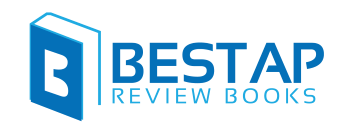AP German Language, also known as Advance Placement German Language, is a specialized course granted by the College Board in running the Advance Placement Program. This specialized course is developed as a prospect for the high school students to achieve credit at a higher level German Language learning.
In the beginning, the College Board wanted to conduct two AP German exams…one is for AP German Literature and the other is for AP German Language; but in 1983 due to a low number of attendance, the exam was eliminated from the syllabus. Hence only AP German Language remained.
AP German Course Content
The course basically focuses on the German Language itself. The goal is to prepare a person for this course so that they can read, write and speak German fluently.
Exam Format
A glimpse into the test pattern of Advance Placement German Language…
There are two categories in Advance Placement German: multiple choice, and free response.
- Multiple-Choice Section:
This section consists of multiple choice questions. You will be given a total of 95 minutes to answer 65 multiple choice questions. The first 30 questions are mainly text oriented but the remaining 35 are audio only or a mixture of text and audio. This first module will be covering 50% of your general score.
- Free-Response Section:
In this second module, you will be given 80 minutes to answer 8 questions. The questions include an email reply, a persuasive essay, a verbal cultural comparison, and you also have to simulate a conversation.
Can The Exam Pattern Change?
The exam pattern was changed recently in 2011; so the exam is being conducted on the newly revised pattern over the last 6 years and currently, there is no plan to change it. So you can without any doubt prepare for the exam keeping in mind aforesaid question pattern.
The Review Materials:
It would be best if you study the previous year’s questions which you can get on the website of College Board. You also have to make sure that you are comfortable with the format of the exam. For the practice purpose, you can go to the website and look for the sample questions.
You can also purchase a good German grammar book called German Grammar Drills to enhance your aptitude to read, write and speak in German.
As we mentioned earlier, there are no Advance Placement books in the market that can prepare you for this exam, so your best option would be to prepare for using this book. It will help you hone your grammar skills, and after that you have the College Board website at your service where you can go through the sample questions to find out whether you have advanced or not.
One final tip for the examinees: if you are looking forward to improving your listening comprehension skills, you need to listen to German radio and watch German movies.
Tips for Self Study:
Compared to any other Language Advance Placement exams, AP German is much difficult for students who self-study, as there are no specific books in the market which can get you really going for this exam or at least provide you with some help.
If you have already been studying the German Language for some time now and have become fluent in the language, these sample and old exam questions will help you in getting accustomed to the format of the test.
But if you don’t already know the German Language, you will face tremendous difficulties as you will need at least 3 to 4 years to reach a certain point where you can get a score of 5 on the Advance Placement exam.
As we have been around this problem for some years, we have devised an action plan for those who want to pass the exam with distinction. Our proposal is to buy Level 1, 2 and 3 of German from here. You will find that the price is the same as you would have to pay for 10 hours with a tutor. It contains more than 380 hours of lesson time, and we believe that at the end of this course you will gain a new ability which is to converse in German more or less fluently. This is the best way to get accustomed to the German Language.
We also recommend the use of Duolingo which comes with 30 minutes of music or movies in German every day and going through some books in German with an in-hand dictionary.
Also Read: Our Picks For Macroeconomics Books

